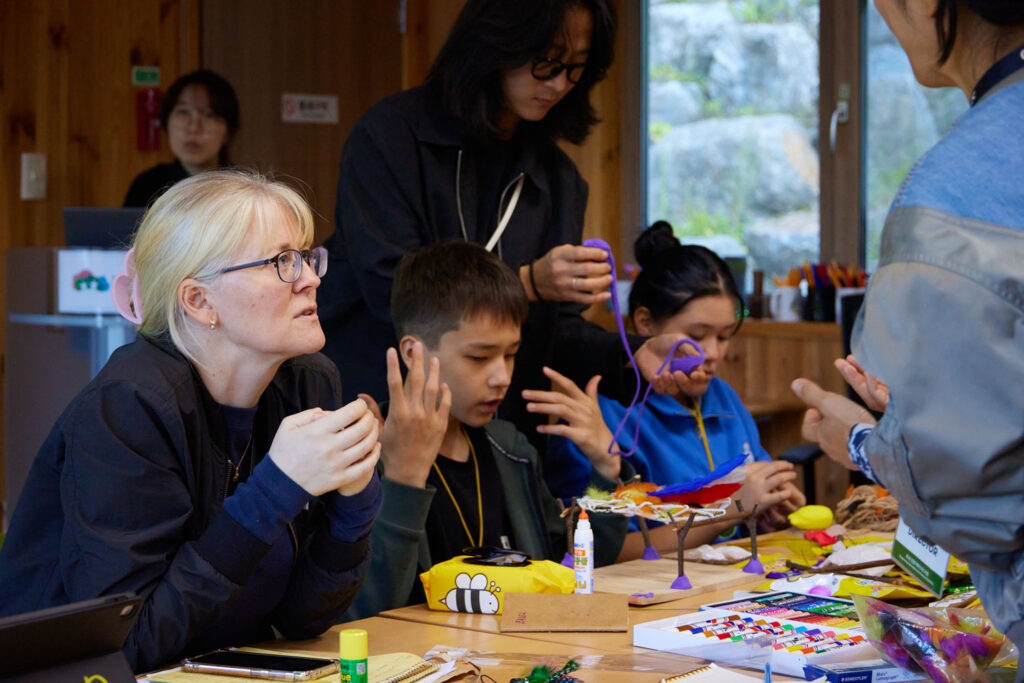VISIT
Program
Multilingual Docent
Since the first edition, the Gangneung International Art Festival (GIAF) has partnered with the Dabom Human Rights Center (Inc.) to offer a multilingual docent. Gangneung’s population has become increasingly multicultural in recent years. According to city statistics, the number of multicultural households grew from 811 in 2018 to 1,100 in 2022, while the number of household members rose by nearly 25%, from 2,704 to 3,376. As of March 2025, 3,954 registered foreign residents live in the city. Vietnamese nationals account for over 45% of this number, followed by Russian (12%) and Chinese residents, forming a diverse international community (Gangneung Family Center). Despite these changes, language and cultural barriers still prevent many foreign residents and multicultural families from accessing the local arts and culture scene. While schools in Gangneung now provide translated newsletters in Mongolian, Russian, and Chinese, and offer cultural education and bilingual teachers to help children adapt, most art exhibitions still rely solely on Korean or English explanations. The Multilingual Docent Program aims to bridge this gap. Docents from diverse linguistic backgrounds guide visitors through the exhibitions in their own languages, helping non-Korean-speaking audiences engage more deeply with the artworks and the city’s stories. This program goes beyond simple interpretation—it seeks to lower linguistic barriers and open up new ways of interaction through art.
Operating schedule and time
Operating days | Available throughout the exhibition period, exclusively for pre-booked reservations.
Application requirements | Foreign visitors who want to enjoy docent services in their native language
Supported languages | 8 Languages including English, Japanese, Russian, Chinese, Vietnamese, Indonesian, Mongolian, Thai
About the Dabom Human Rights Center
The Dabom Human Rights Center (Inc.) is a nonprofit organization that works to protect and promote human rights by opposing all forms of discrimination and abuse. In addition to daily life counseling, it provides active support for issues such as unpaid wages, poor working conditions, and low income. The center also runs Korean language classes for migrant workers, human rights education programs, and youth camps focused on human rights. At its core, the center envisions a society where people from different cultures and backgrounds can live together in mutual respect.

